Adata XPG SX8200 Pro Review: Go Pro on a Budget (2TB Update)
Why you can trust Tom's Hardware
Adata XPG SX8200 Pro (2TB)
Pros:
- High-performance
- Class-leading power efficiency
- Black PCB with stylish DIY heat spreader
- Software package
- 5-year warranty
Cons:
- Same endurance as the non-Pro model
Verdict: At the 2TB capacity, Adata’s XPG SX8200 Pro is a highly competitive SSD that trades blows with Samsung’s finest. For the price, it is a solid pick.
4.5/5
Comparison Products
We compared to the 2TB capacity of the Adata XPG SX8200 Pro to several other popular SSDs, including HP’s SSD EX950, Intel's high-end Optane 905P SSD and the affordable Intel SSD 660p. Additionally, I’ve included Patriot’s Viper VP4100, a PCIe 4.0 NVMe SSD and Crucial’s MX500, a SATA SSD. And, MyDigitalSSD’s BPX Pro and WD’s HDD make their way into the ranks. Of course, we had to throw in some Samsung competition too, so we have included the 970 EVO Plus and a 970 PRO for good measure.
Game Scene Loading - Final Fantasy XIV
The Final Fantasy XIV StormBlood benchmark is a free real-world game benchmark that easily and accurately compares game load times without the inaccuracy of using a stopwatch.
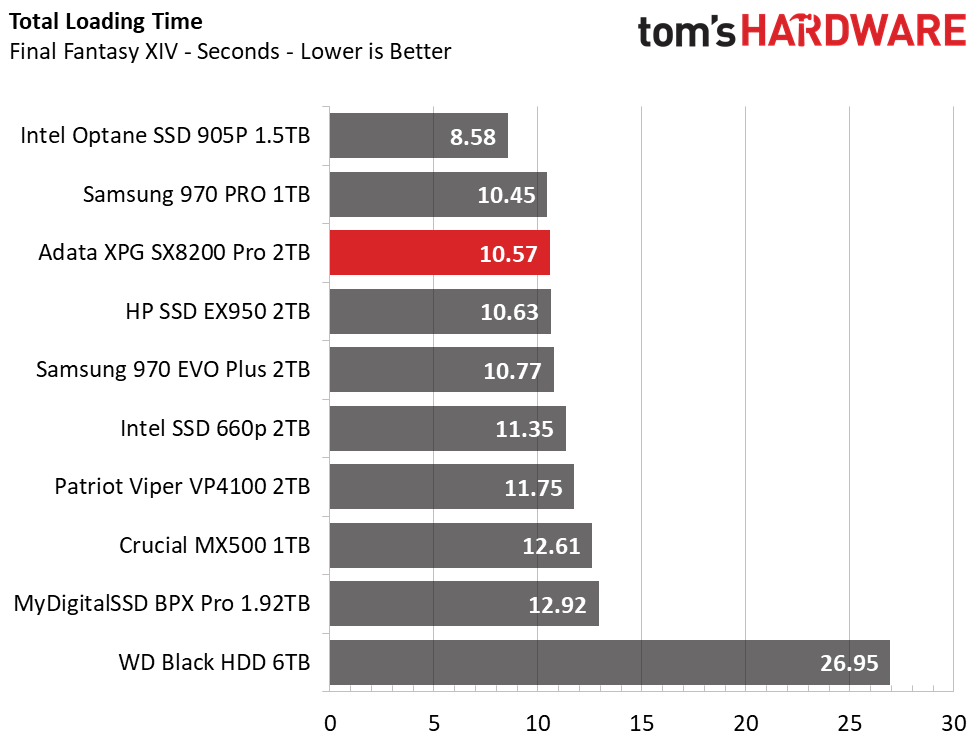
In this test, Adata’s XPG SX8200 Pro is one of the fastest SSDs. It scores third place, trailing the 970 PRO by a fraction of a second. HP’s SSD EX950 follows with a similar score. While there wasn't a huge delta between the SX8200 Pro and the drives immediately below it, it was 10 to 20 percent quicker than competitors like the Crucial MX500 and MyDigitalSSD BPX Pro.
Get Tom's Hardware's best news and in-depth reviews, straight to your inbox.
Transfer Rates – DiskBench
We use the DiskBench storage benchmarking tool to test file transfer performance with our own custom 50GB block of data. Our data set includes 31,227 files of various types, like pictures, PDFs, and videos. We copy the files to a new folder and then follow-up with a reading test of a newly written 6.5 GB file.
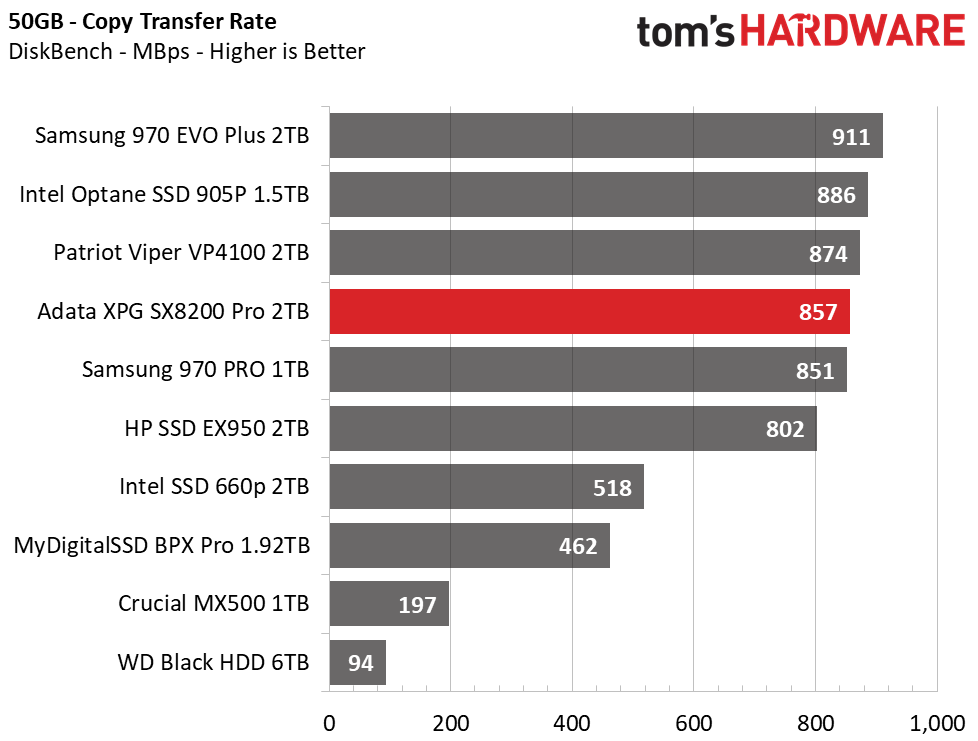
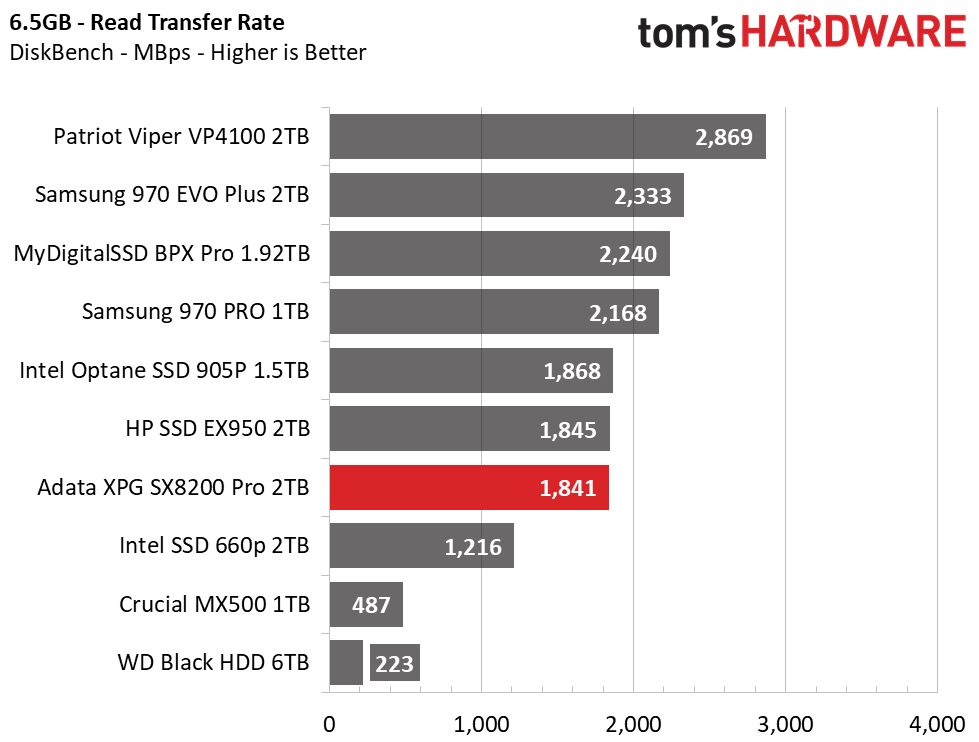
Transfer performance can vary greatly depending on the device. When copying our 50GB test folder, the Adata outperformed Samsung’s 970 Pro but trailed behind the company’s 970 EVO Plus. Also, it came in just behind that of Intel’s fastest SSD, the Optane 905P and Patriot's new PCIe Gen4 NVMe SSD, the Viper VP4100. While copy performance was impressive, as with the HP, Adata’s XPG SX8200 Pro reads our 6.5GB zip file at a slower rate than most.
Trace Testing – PCMark 8 Storage Test 2.0
PCMark 8 is a trace-based benchmark that uses Microsoft Office, Adobe Creative Suite, World of Warcraft, and Battlefield 3 to measure the performance of storage devices in real-world scenarios.
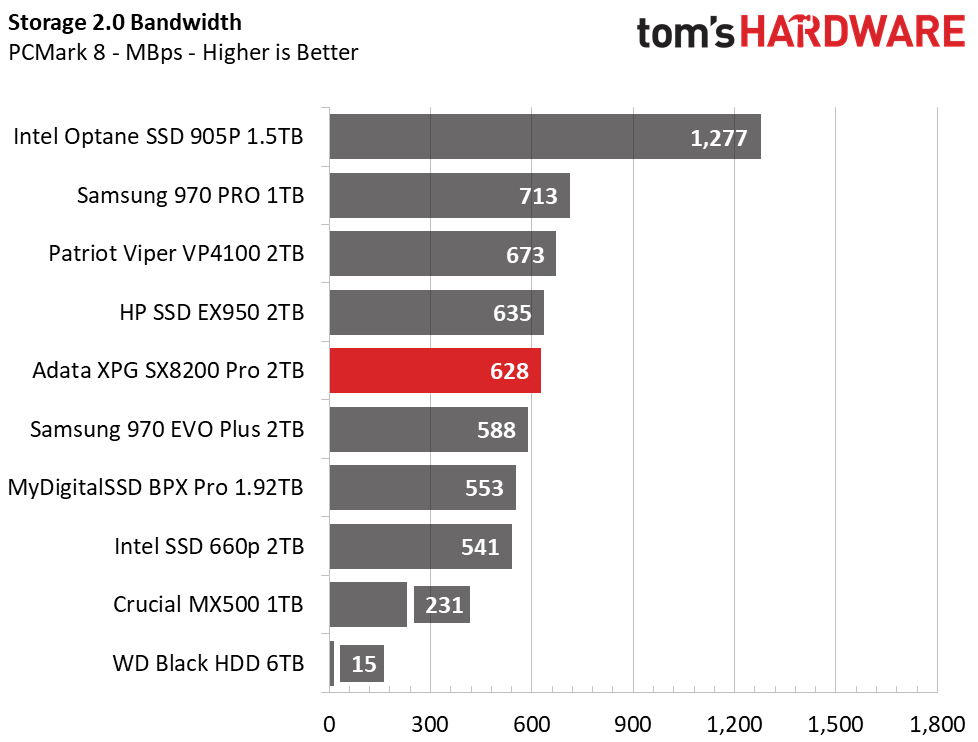
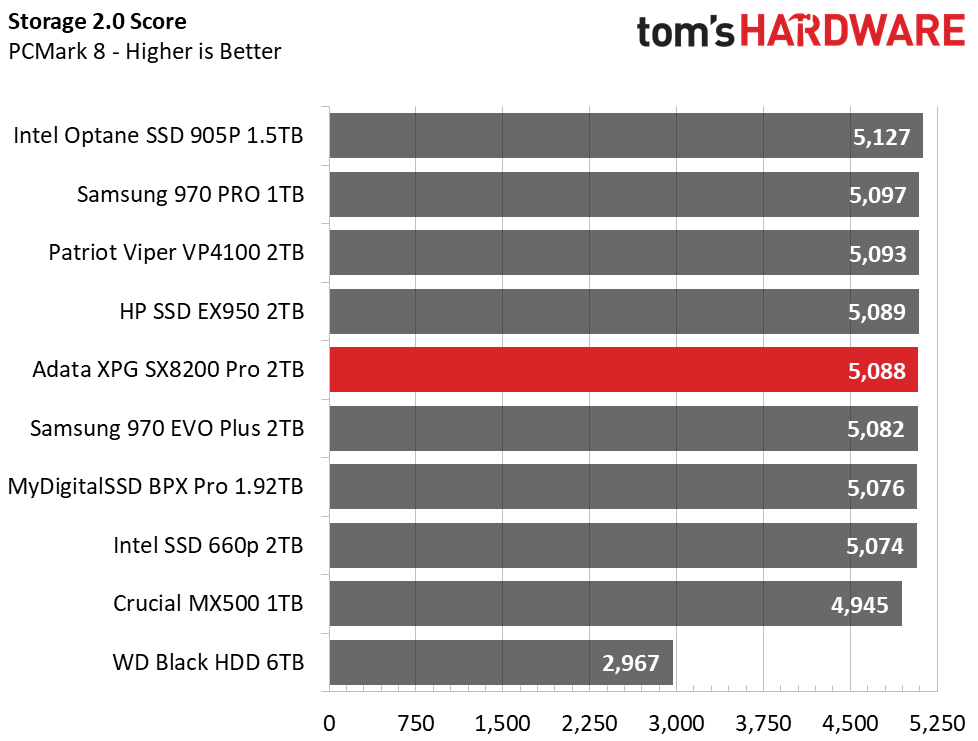
Adata’s XPG SX8200 Pro scores fifth place overall, scoring similar to HP’s SSD EX950. With an average throughput of 628 MBps, it even outperforms the Samsung 970 EVO Plus. Relative to a SATA SSD, it offers more than double the performance and over 40x the performance over an HDD.
Trace Testing – SPECworkstation 3
Like PCMark 8, SPECworkstation 3 is a trace-based benchmark, but it is designed to push the system harder by measuring workstation performance in professional applications.
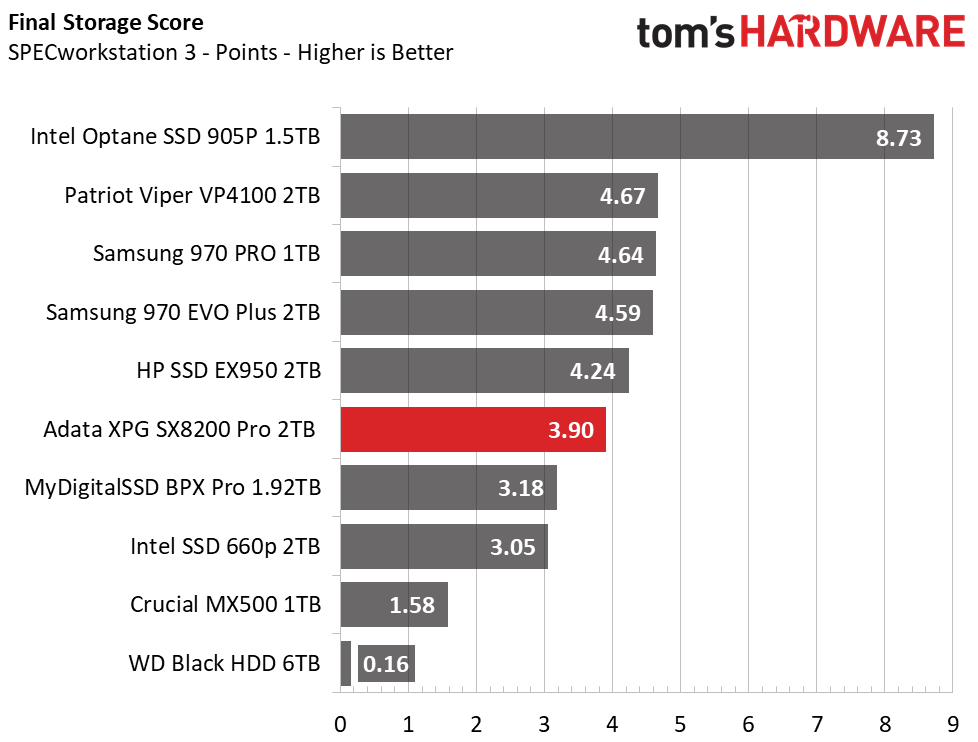
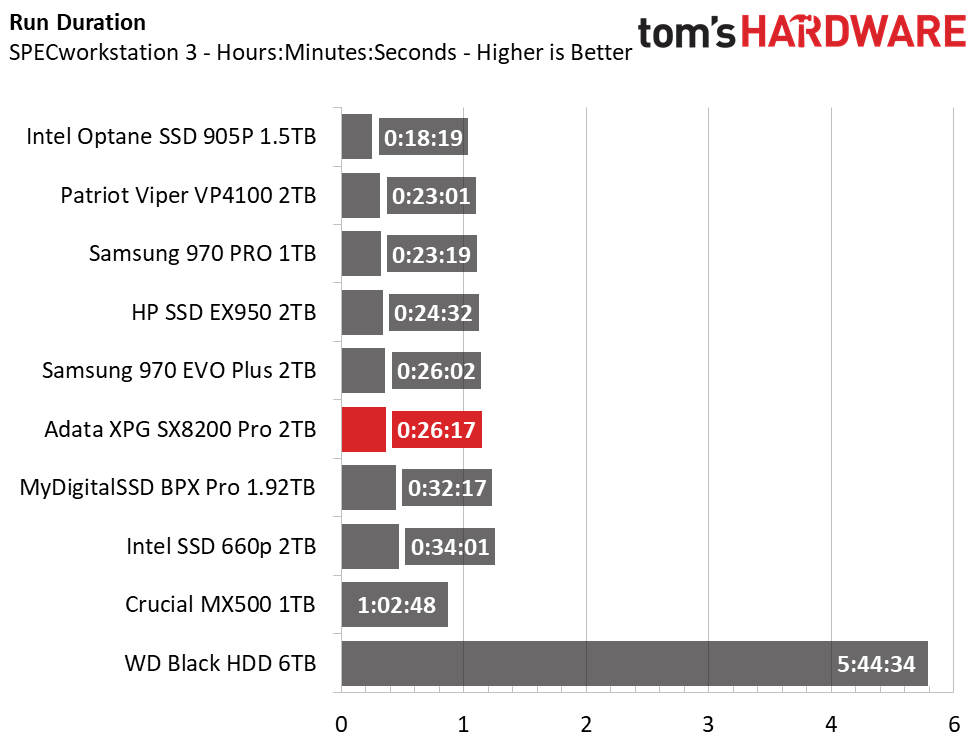
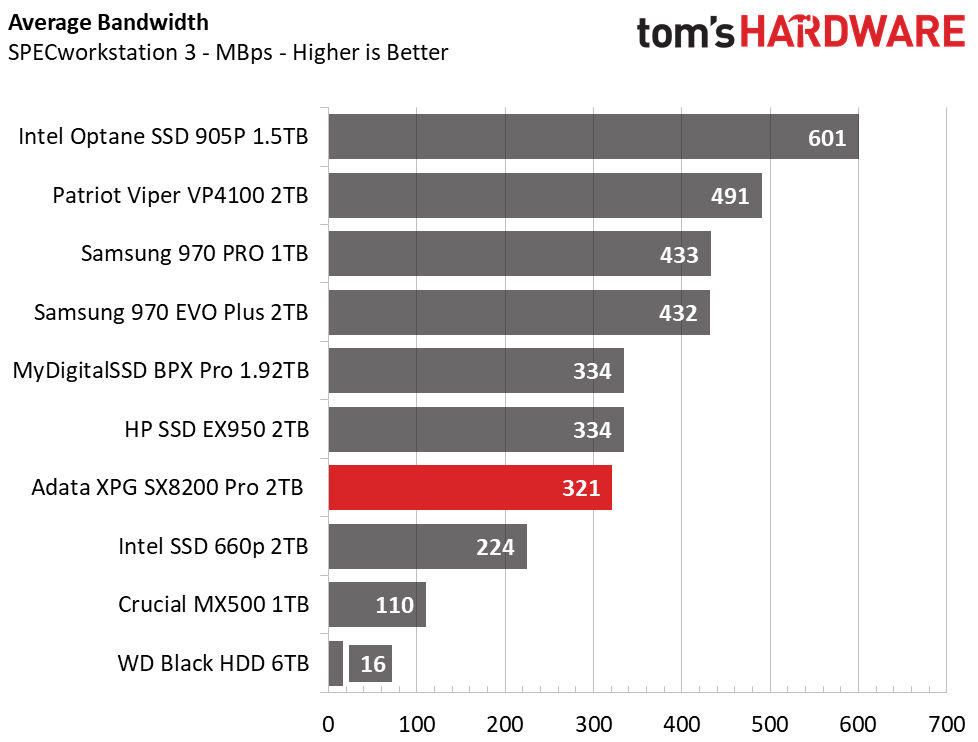
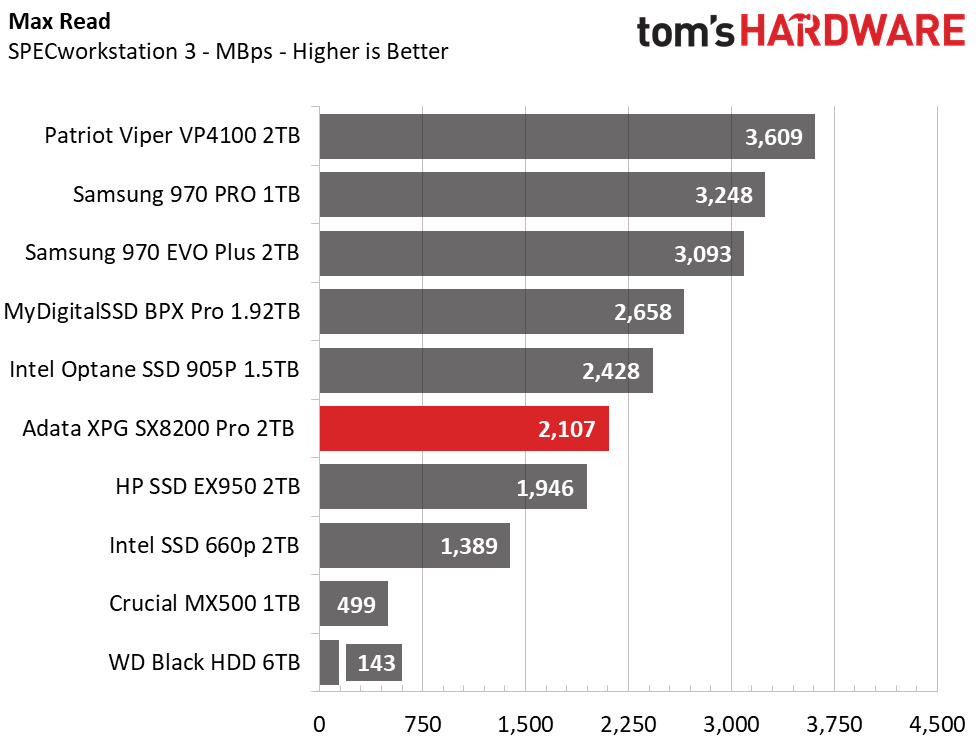
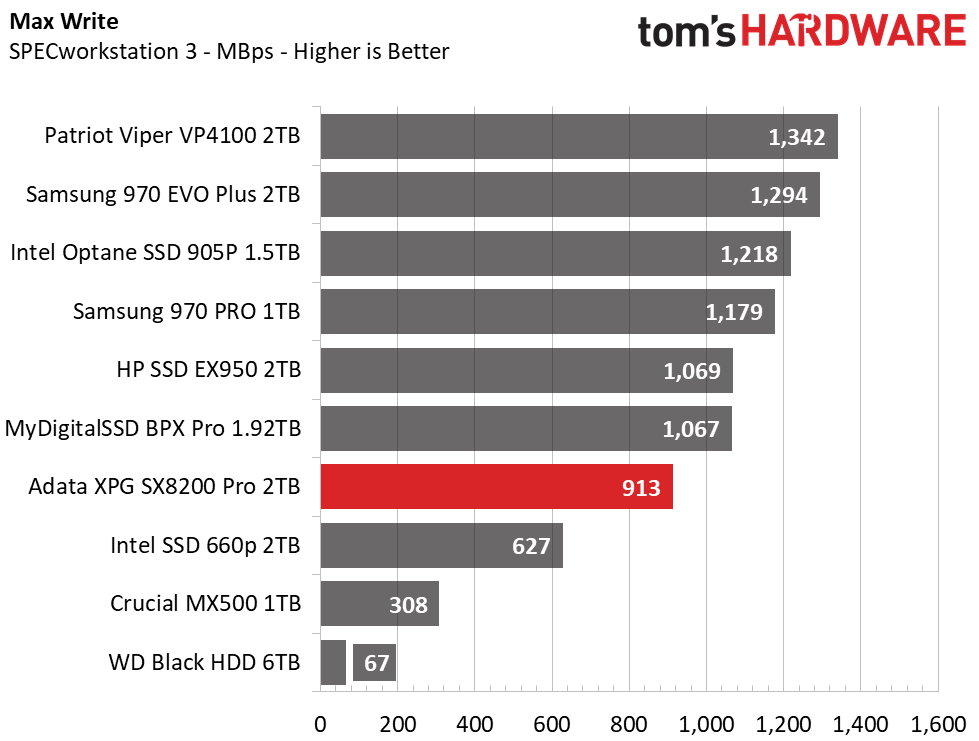
When pushed a bit harder with SPECworkstation 3, Adata’s 2TB SX8200 Pro keeps up well. It ranks sixth place overall and offers a big improvement over SATA SSDs.
Synthetics - ATTO
ATTO is a simple and free application that SSD vendors commonly use to assign sequential performance specifications to their products. It also gives us insight into how the device handles different file sizes.
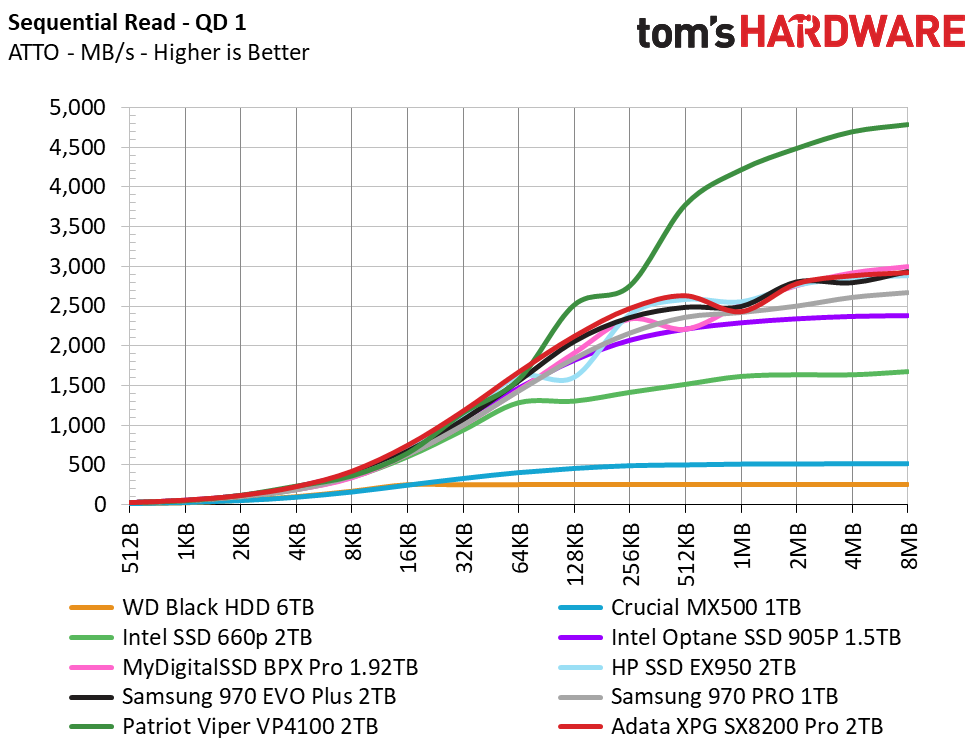
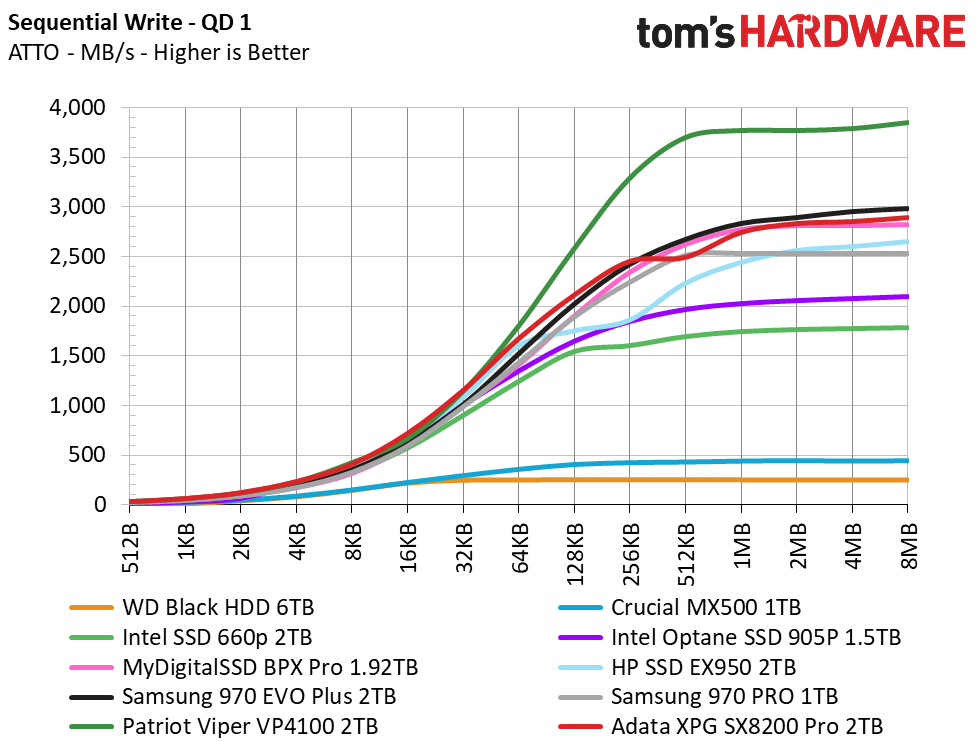
In ATTO, we tested Adata’s XPG SX8200 Pro at a QD of 1, representing most day to day file access at various block sizes. It scores similarly to most other NVMe SSDs in its class with reads and writes of about 3 GBps.
Synthetic Testing - iometer
iometer is an advanced and highly-configurable storage benchmarking tool that vendors often use to measure the performance of their devices.
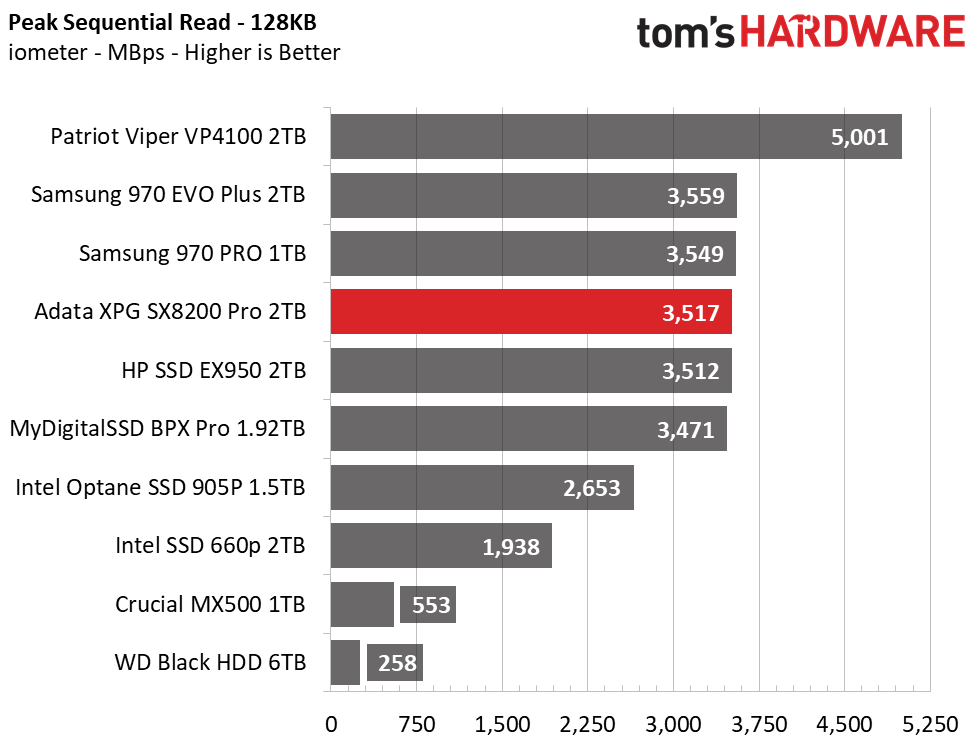
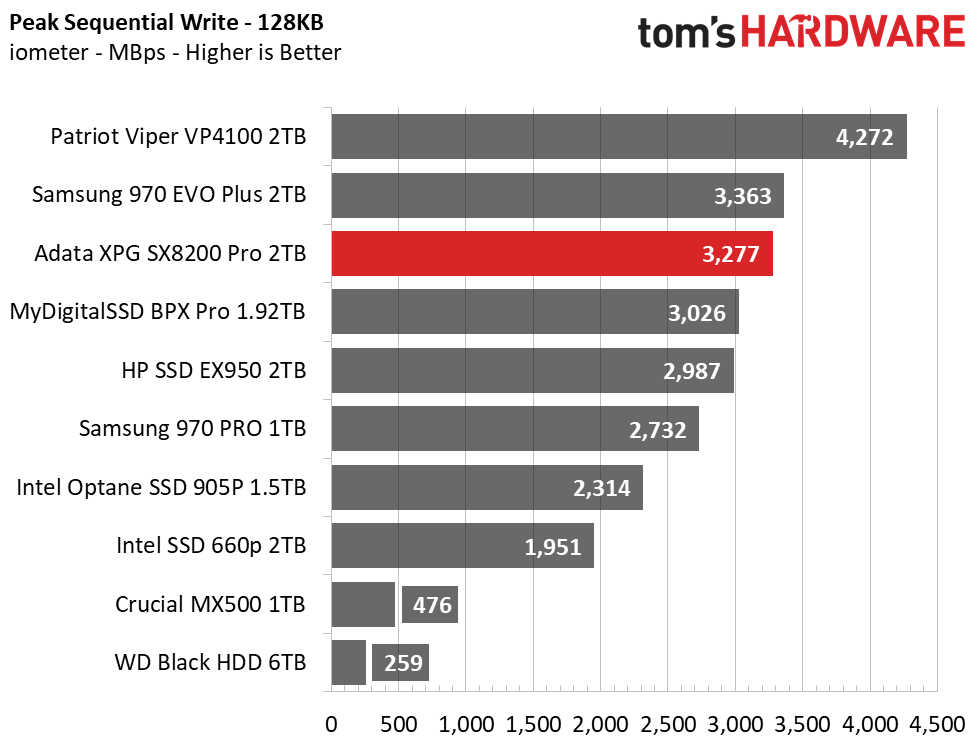
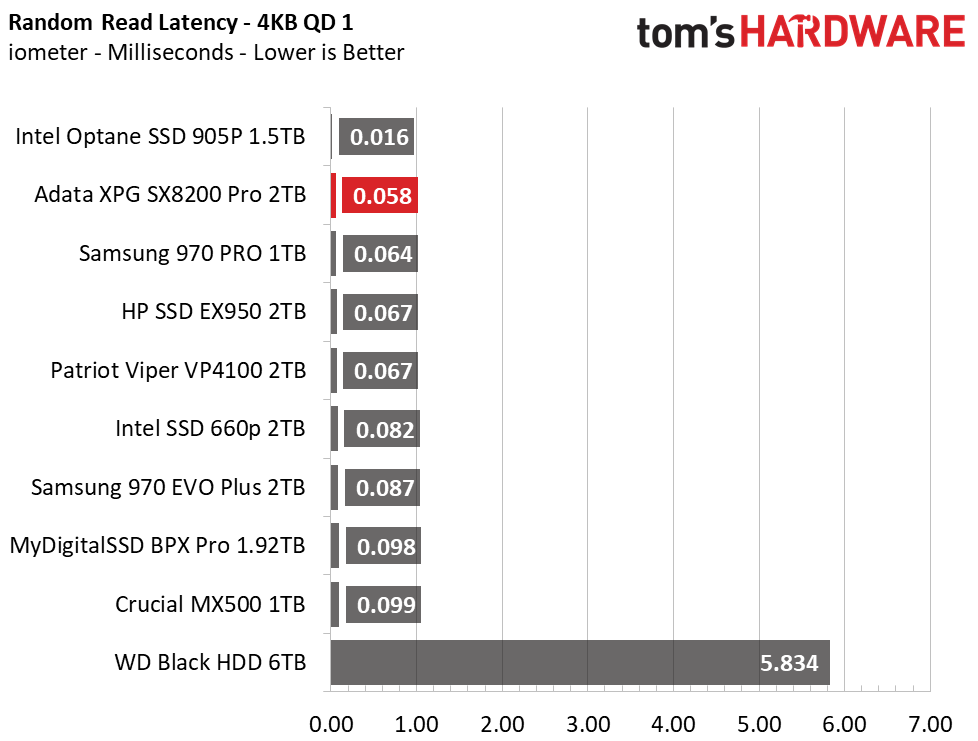
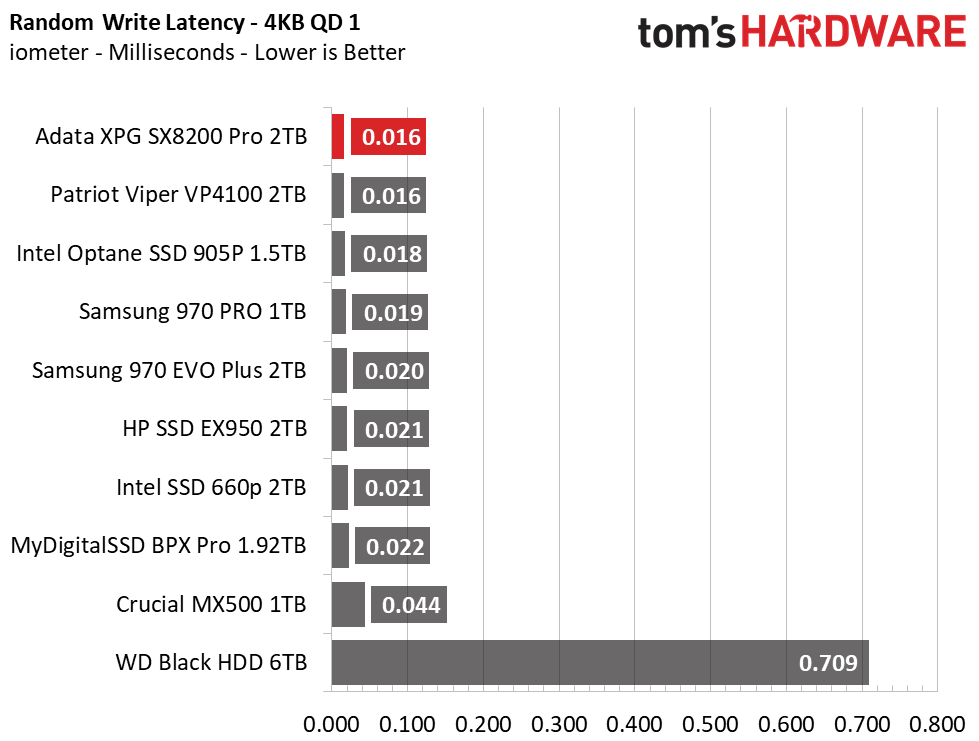
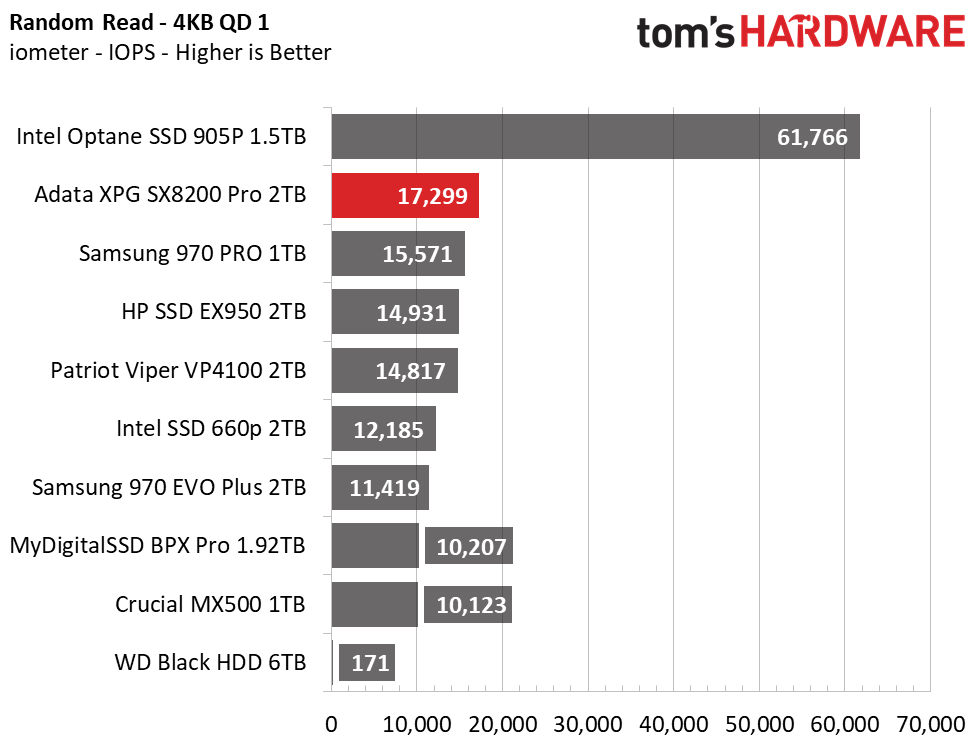
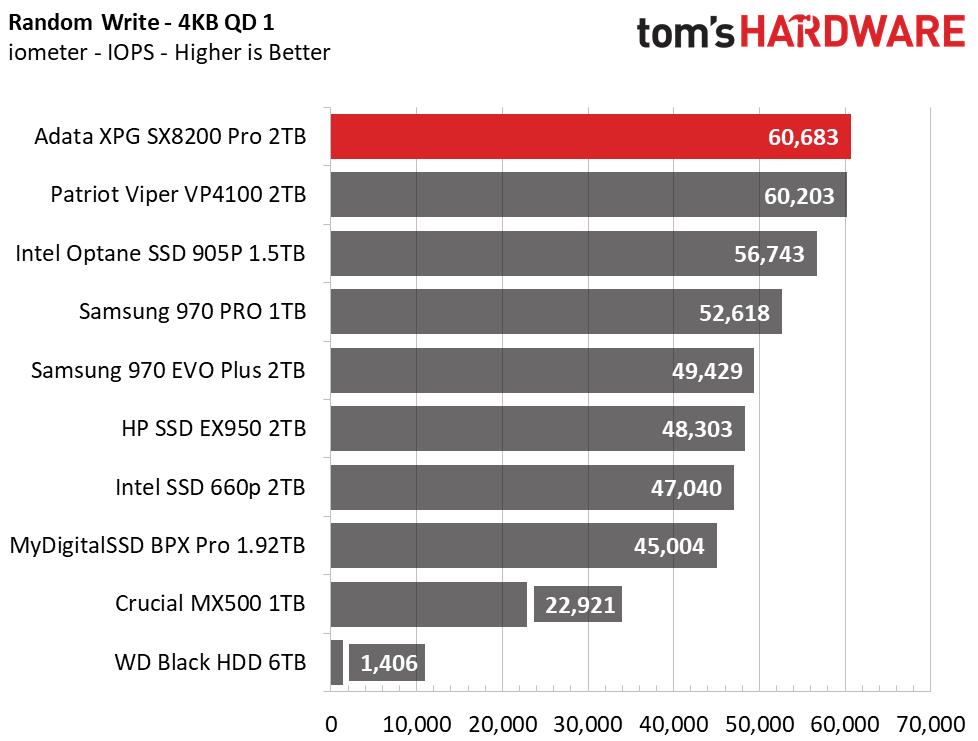
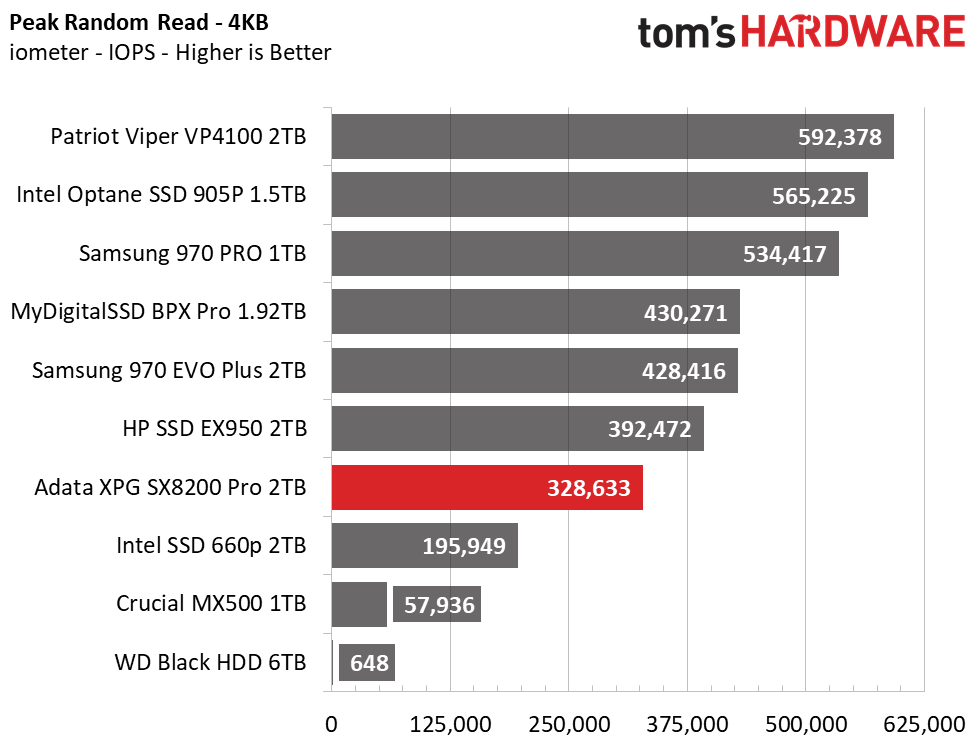
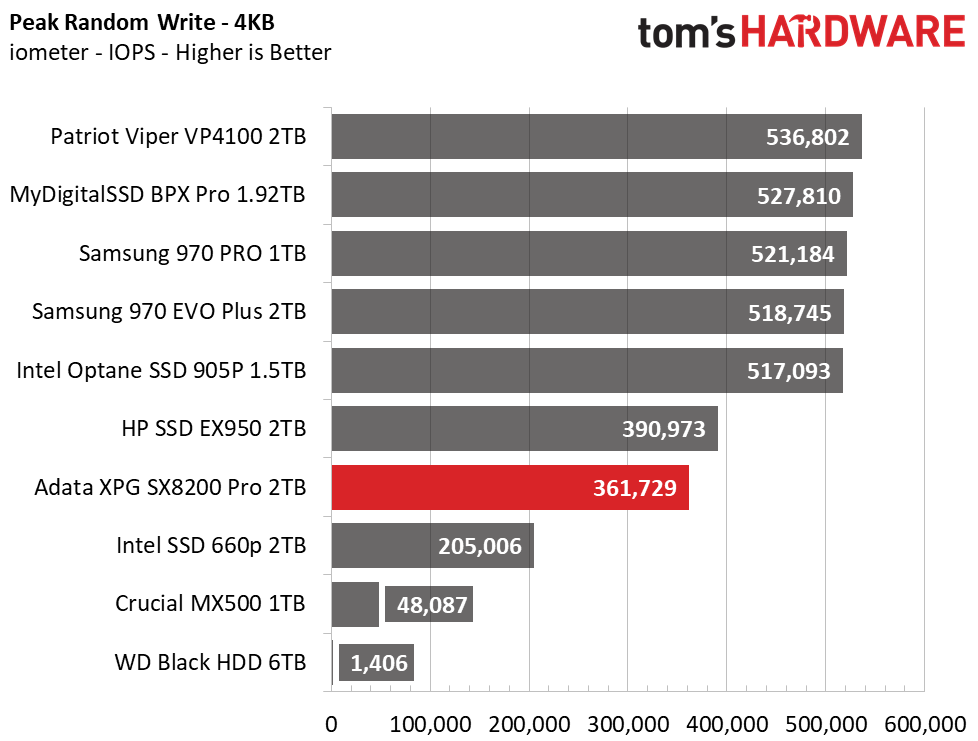
Pushing things to their peak, we tested the 2TB SX8200 Pro and found it delivering sequential performance of about 3.5/3.3GBps read/write. Random latency is very low with one of the fastest results we have seen from a NAND-based product. It comes in second, behind the Intel Optane 905P in reading, and beats it in write speed. The XPG SX8200 Pro's peak performance isn’t the highest, but that won't matter for most consumer workloads.
Sustained Write Performance & Cache Recovery
Official write specifications are only part of the performance picture. Most SSD makers implement a pseudo-SLC write cache, which is a fast area of SLC-programmed flash that absorbs incoming data. Sustained write speeds can suffer tremendously once the workload spills outside of the pSLC cache and into the "native" TLC or QLC flash. We use iometer to hammer the SSD with sequential writes for 15 minutes to measure both the size of the write cache and performance after the cache is saturated. We also monitor cache recovery via multiple idle rounds.
When possible, we also log the temperature of the drive via the S.M.A.R.T. data to see when (or if) thermal throttling kicks in and how it impacts performance. Bear in mind that results will vary based on the workload and ambient air temperature.
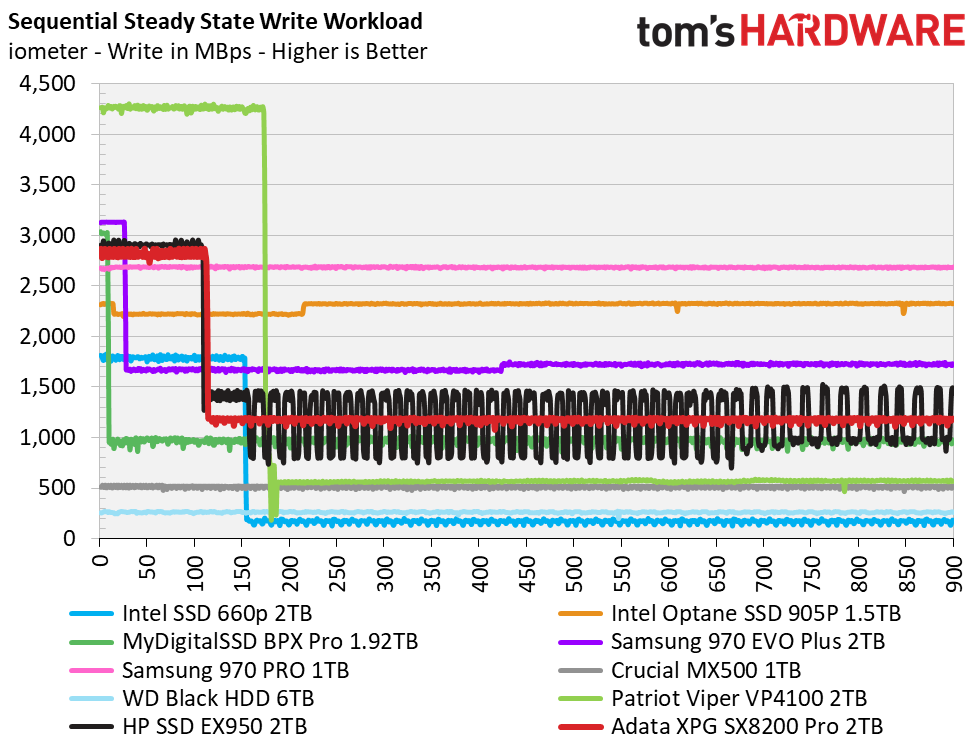
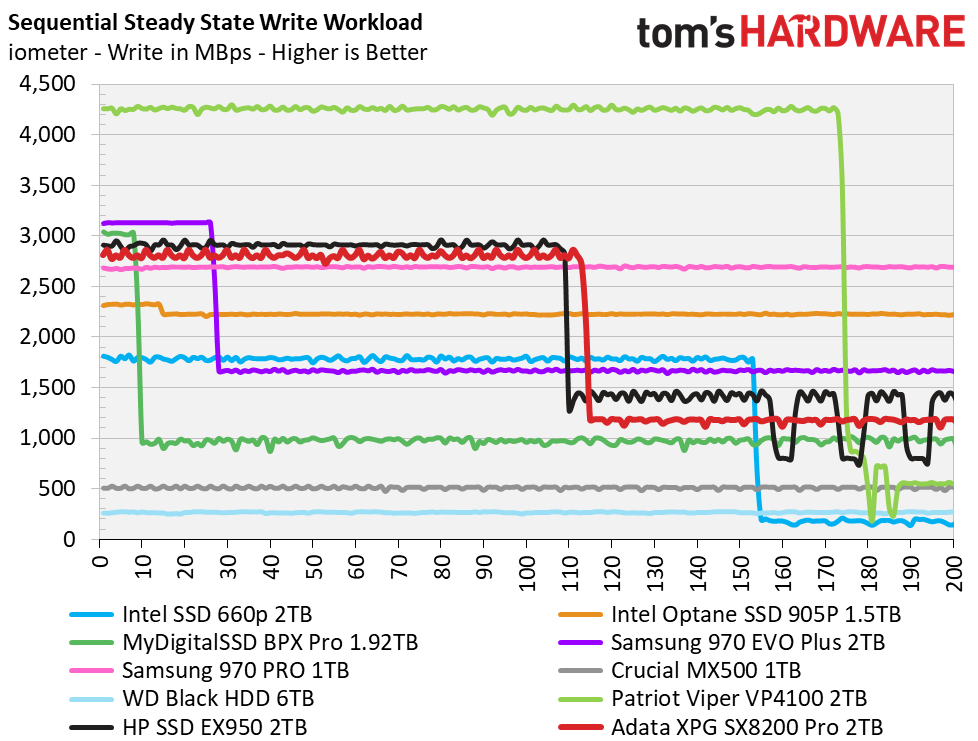
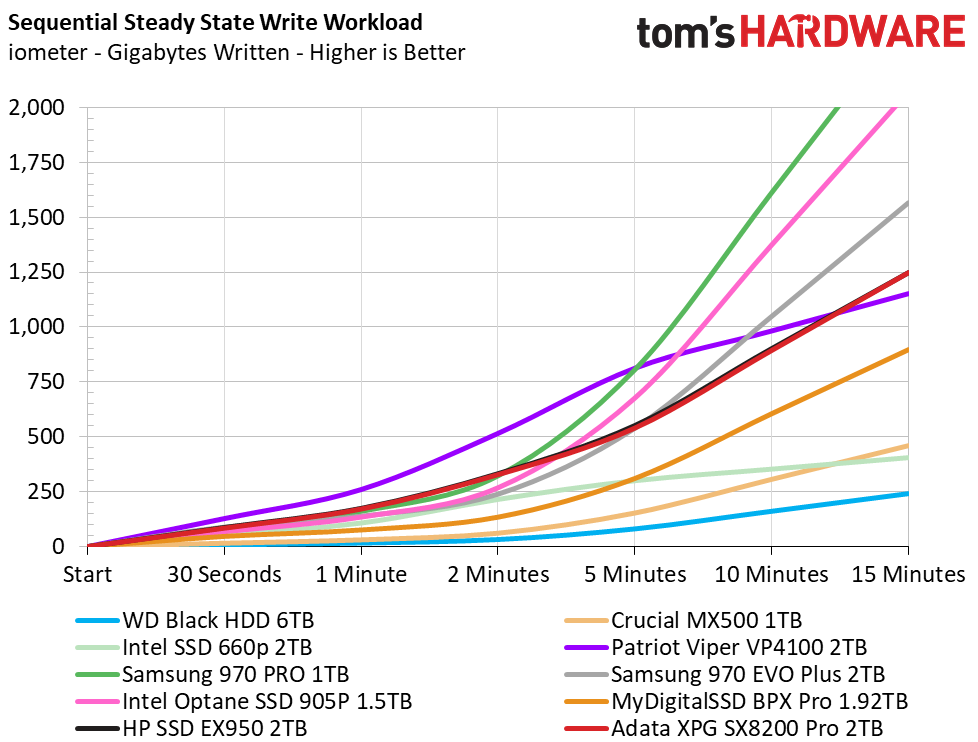
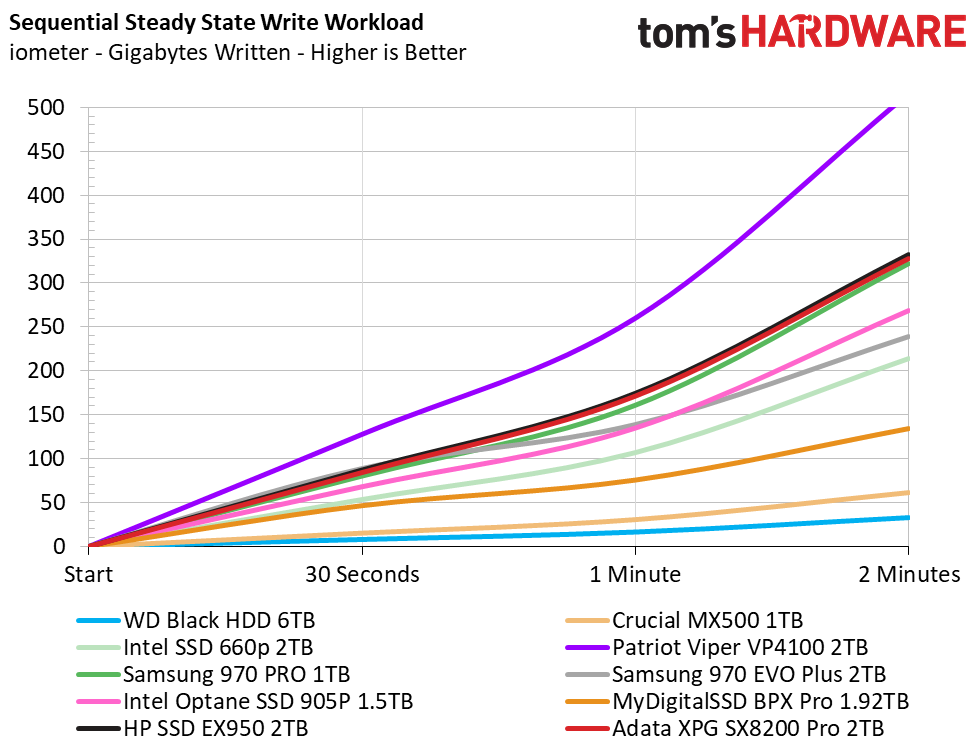
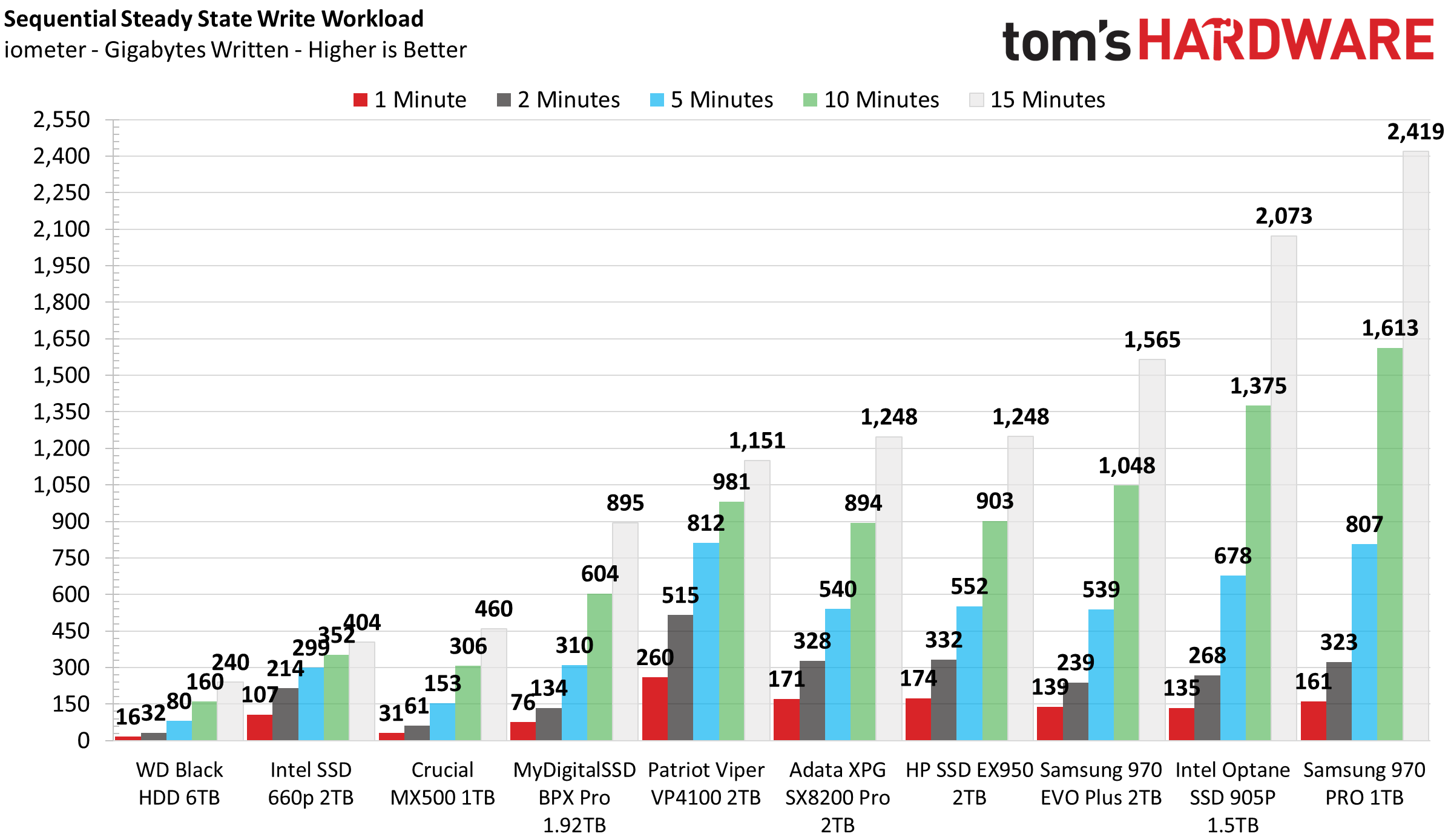
The sequential write performance is very respectable. We measured writing over 315GB of data before the SLC cache filled. At that point, performance degraded from 2.8 GBps down to about 1.2 GBps. Beyond the 15-minutes, we recorded a final write performance drop down to 825 MBps.
When recovering data, we were able to write the full cache size once more after 30 seconds of idle time. After that, however, it regained about 16GB of cache space per one minute but remained so even after 30 minutes. So, this may be a static cache kicking in before the dynamic cache rebuilds.
Power Consumption
We use the Quarch HD Programmable Power Module to gain a deeper understanding of power characteristics. Idle power consumption is a very important aspect to consider, especially if you're looking for a new drive for your laptop. Some SSDs can consume watts of power at idle while better-suited ones sip just milliwatts. Average workload power consumption and max consumption are two other aspects of power consumption, but performance-per-watt is more important. A drive might consume more power during any given workload, but accomplishing a task faster allows the drive to drop into an idle state faster, which ultimately saves power.
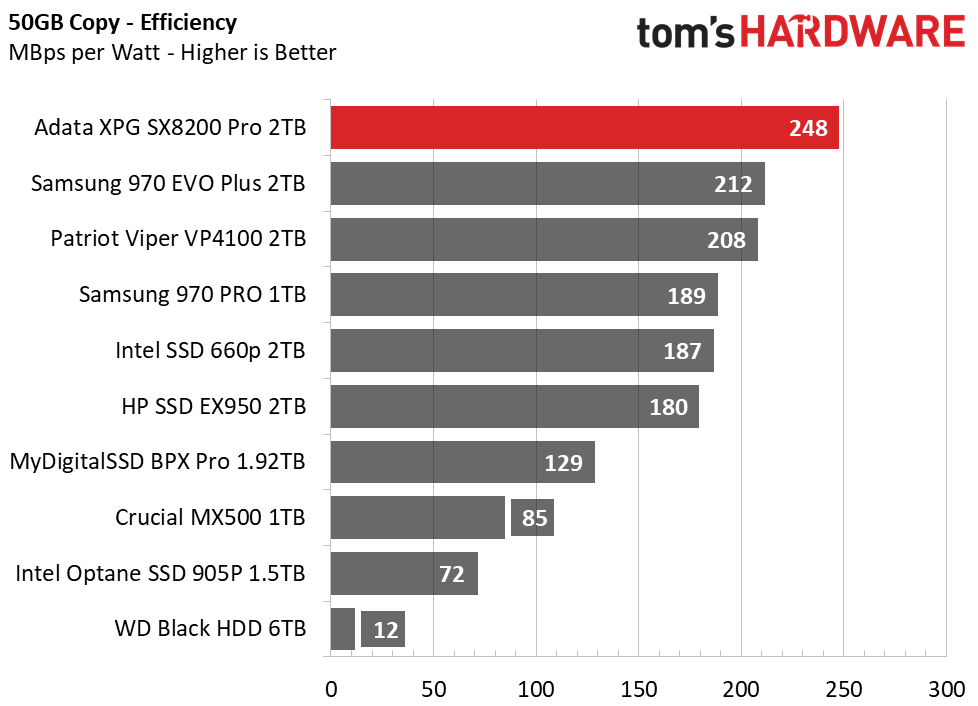
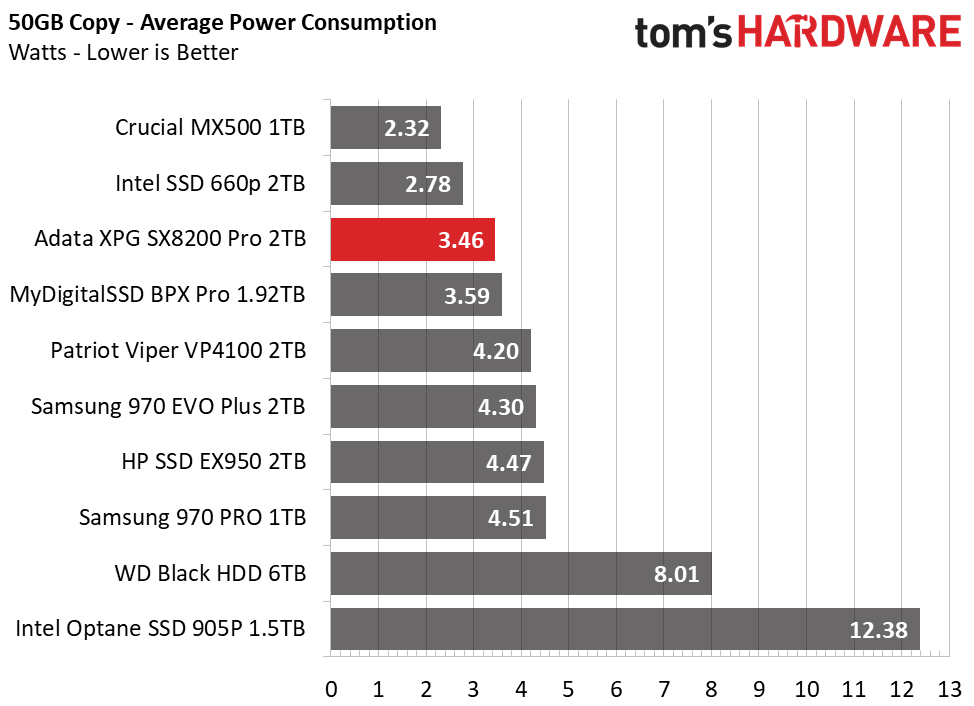
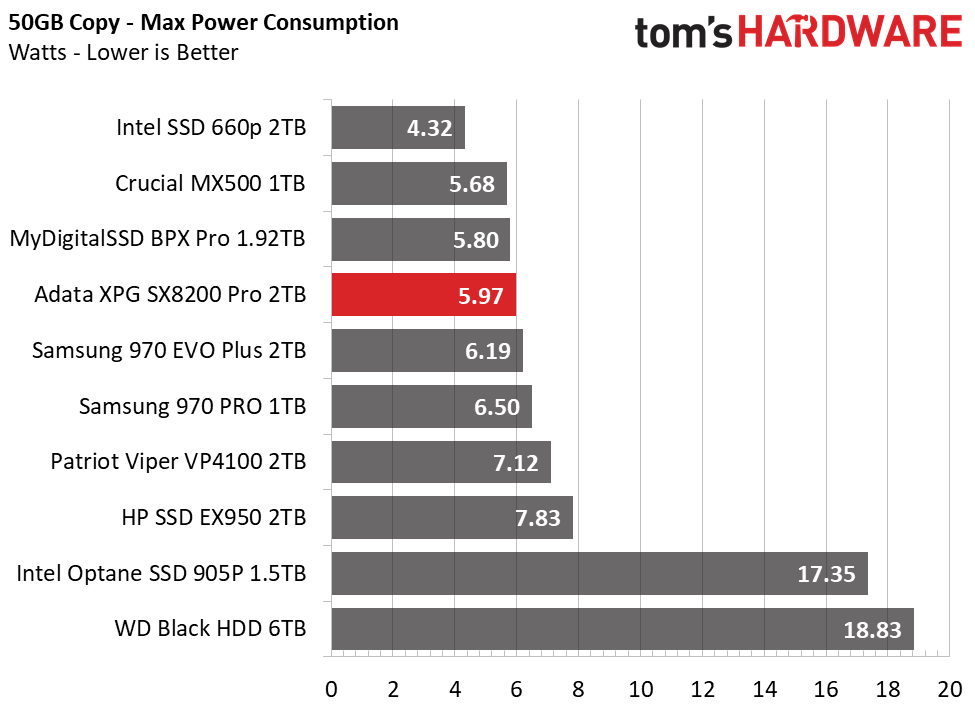
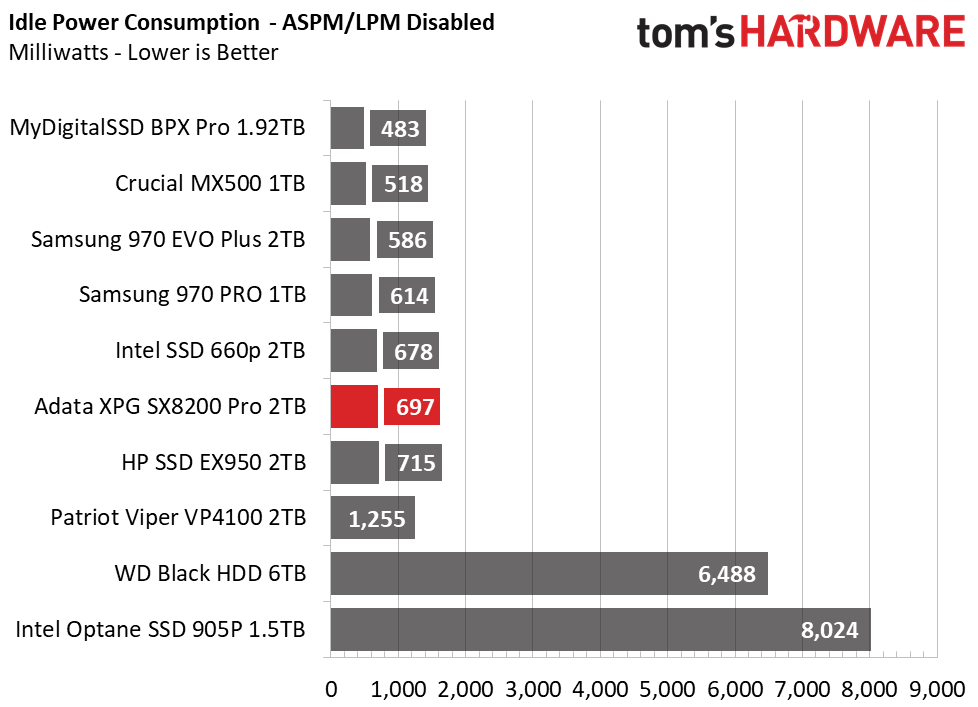
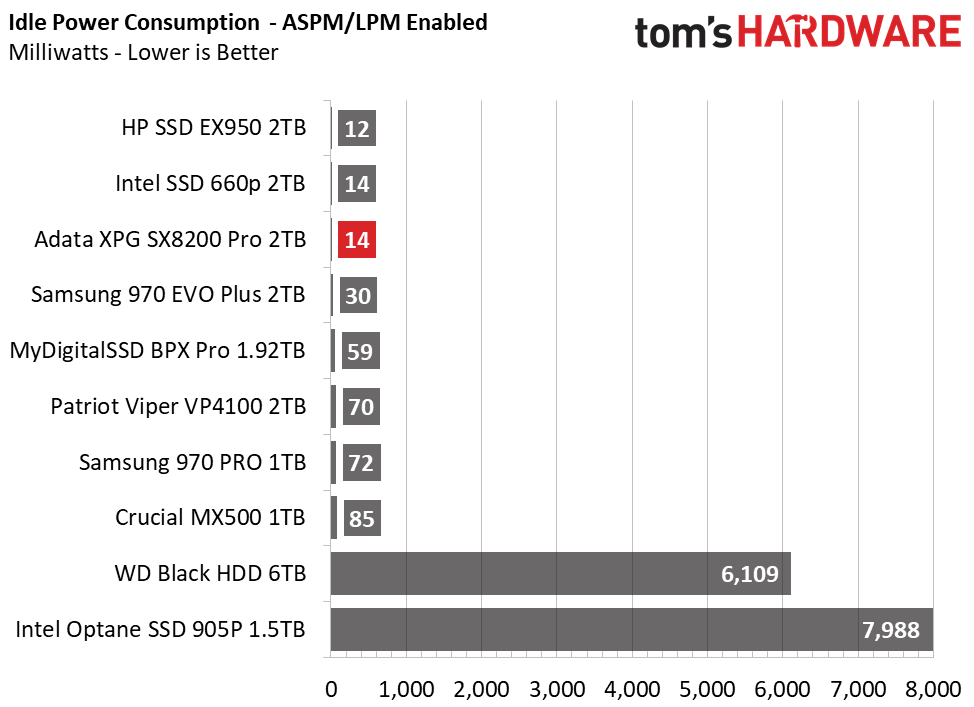
Adata’s 2TB XPG SX8200 Pro outperforms the pack with a high-efficiency score of 248 MBps of throughput per watt used. On average it consumed the least amount of power of the high-end PCIe 3.0 x4 SSDs and peaked at just 6W. Idle power consumption was similar to other Silicon Motion based SSDs.
MORE: Best SSDs
MORE: How We Test HDDs And SSDs
MORE: All SSD Content

Sean is a Contributing Editor at Tom’s Hardware US, covering storage hardware.
-
popatim Did you run into any issues witht he drive being detected on restarts like several forum users reported?Reply -
Khadijahp Though an limited edition, for comparision purposes the Intel's Ryzen killer Core i9 9900KS should had been included, instead of, or beyond the overclocked 9900K.Reply -
Mezoxin Reply
had the drive for quite a while on my system as my main drive never experienced such issuespopatim said:Did you run into any issues witht he drive being detected on restarts like several forum users reported? -
Mezoxin Reply
yes this is an old review from feburary-april i think , it got somehow reposted , i know this because i read this review before buying minemac_angel said:I thought you did a review of this drive a long time ago. -
Gillerer "Pro" is just a word. You can't draw conclusions from Samsung's use of it to mean "MLC" / "more consistent performance", and apply it to other manufacturers. (You could just as well draw conclusions from AMD's past use of it to mean "partially disabled silicon".)Reply
This simply has an updated controller and firmware compared to the original SX8200, so different - but not necessarily better in all cases - performance characteristics. It's not a different class of product to SX8200 (non-Pro), but rather a later revision that replaces it. -
AlistairAB Replypopatim said:Did you run into any issues witht he drive being detected on restarts like several forum users reported?
Have bought several of these, never had issues showing up in the BIOS. I did have that problem with the Intel equivalent once (the Intel 760p or whatever it was called). Anyways that stuff is motherboard dependent, and has nothing to do with the SSD. -
plotinusredux SM2262EN drives are showing significant slowdowns off the x570 chipset compared to the off the CPU, though we're having trouble getting a response on it. For me (3700x MSI ACE x570 ADATA SX8200PNP) even at Q=1, sequential read is dropping from 2794 MB/s to 2422 MB/s in Crystal. Random read performance is only dropping a little, but random writes are also affected (226 MB/s to 199 MB/s at Q=1, 1451 MB/s to 1041 MB/s at Q=32).Reply
This seems to only be happening with the SM2262EN--see "X570 + SM2262(EN) NVMe Drives" reddit thread where people have tested specifically SM2262EN drives and ones with other controllers in the same system.
If you could test the ADATA and one with another controller on an x570 motherboard, maybe we could get SMI or AMD's attention. -
Zpxkma Anyone else receive one of these ssds with different dram and nand? My first sx8200 pro had micron/nanya and the second one I ordered came with Unic²/Samsung(sec).Reply
a/XujJcFnView: https://imgur.com/a/XujJcFn